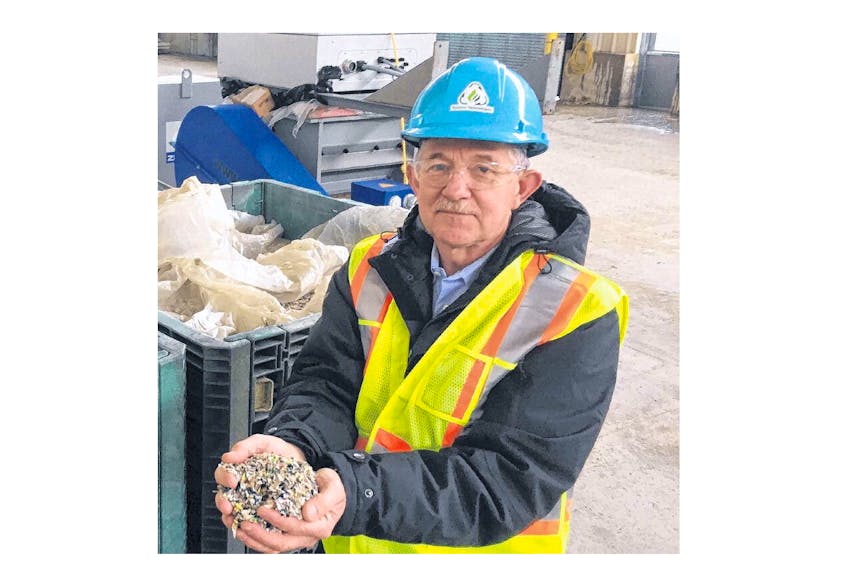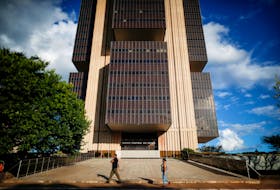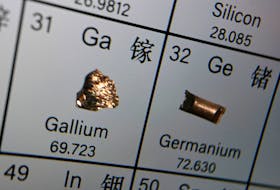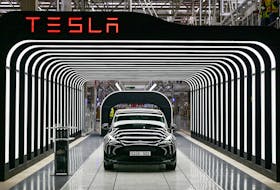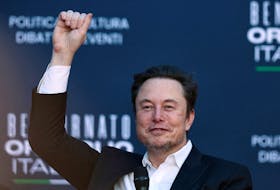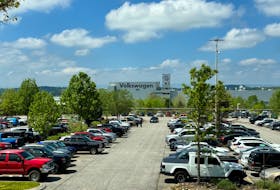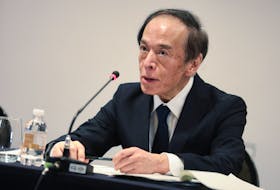A40,000 square-foot building at Chester’s landfill is expected to convert garbage bags into about 3.5 million litres of synthetic diesel every year.
The facility intends to take on 90 per cent of the 50,000 tonnes of annual solid waste that arrives at the landfill and produce even more bio fuel, through a process that generates zero emissions.
Peter Vinall, president and co-founder of Sustane Technologies, is the man behind the venture.
Come this time next year, he says, it will be operating 24 hours a day, seven days a week and employing at least 25 people. The facility is set to open this summer.
It’s there where garbage, from as far away as Bridgewater and the Annapolis Valley, will beturned into bio-fuel. But not before a series of steps that will see the waste shredded and fed through a cooking system that separates the plastic from the remaining waste. The plastic is then cleaned; the contaminants are removed and dried. The shredded plastic then goes through another process called pyrolysis, where, in the absence of oxygen, synthetic diesel is extracted. But it also produces kerosene fuel that will power the facility operations. What’s left over is converted into biomass pellets.
So far, the company has secured a contract with at least one company, providing a million litres of synthetic diesel fuel.
“We’ve over-built this facility,” said Vinall. “It can handle 70,000 tonnes per year and we’ve
got 50, 000 tonnes now so we’re open for business. We’d like to see the facility utilized to its maximum.
“We’re a clean technology startup but the pieces of technology that we are deploying are not in themselves new. Pyrolysis has been around for hundreds of years. But the way we are doing it is unique.
“The break through here is how we arrange all these technologies, how we clean the biomass in 13 different separating points in the process.”
Vinall brings with him 35 years experience in the pulp and paper sector. There he served as an engineer to a CEO. In the latter role he was on a quest to find alternative cheaper energy solutions, which led him to PK Clean, a company out of Salt Lake City that’s providing all the design work and manufacturing for the business.
Based in Vancouver, he says he was intrigued by Nova Scotia and its history of waste management, particularly in the area of recycling.
“Nova Scotia has a good understanding of the value of recycling, so it was kind of inherent here in Nova Scotia.
“Though Halifax is the place to start, it was tied up in a long-term contract with Otter Lake. I didn’t want to give up on Nova Scotia so I ran to Chester. It has the third biggest landfill in the province.”
As it stands now, Chester municipality will pay Sustane Technologies to handle the majority of its waste. Warden Allen Webber couldn’t offer a dollar figure but said it was roughly equivalent to the amount the municipality is currently paying to manage its waste.
“The primary reason we’re doing this is that we’regoing to do something with waste that should have been done a long time ago,” he said. “That is to treat it as a resource as opposed to just waste. That’s environmentally the right thing to do and economically the right thing to do and it’s long overdue. They’re bringing a technology to Chester that allows us to do just that.”
Currently, the province won’t allow the company to process roadside recyclable plastics, including plastic grocery bags, but he hopes that can change with negotiations in the future.
He and his partners have got a lot on the line.
They’ve raised $7 million in private capital and stand $8 million of debt. He said the company is fully funded but will continue to raise a bit more money. The company’s gotten some provincial government and federal government funding, including a $500,000 repayable ACOA loan, announced Wednesday, as well as a $2.6-million grant from Innovation, Science and Economic Development last August.
Vinall says he’s getting interest from other municipalities and the plan is for expansion at some point. But he remains confident the technology behind his company will prove to be essential in the future.
“The long-term consequences of not caring about this are so dire for our planet. We have to start really thinking about where our energy is going to come from.”

